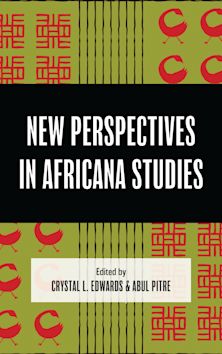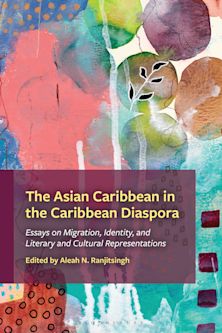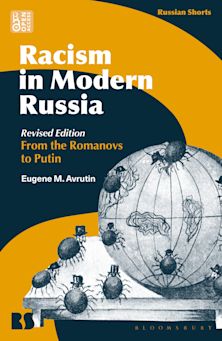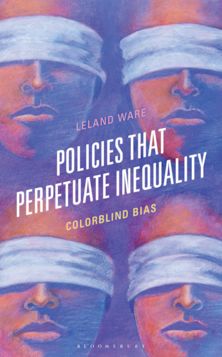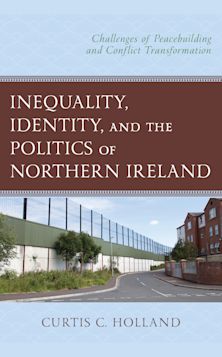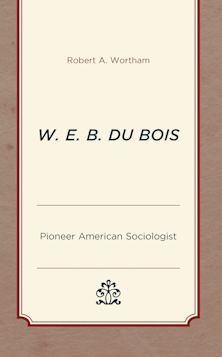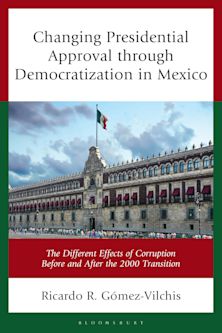- Home
- ACADEMIC
- Politics & International Relations
- Race and Ethnicity
- China’s Long and Winding Road to Modernization
China’s Long and Winding Road to Modernization
Uncertainty, Learning, and Policy Change
China’s Long and Winding Road to Modernization
Uncertainty, Learning, and Policy Change
You must sign in to add this item to your wishlist. Please sign in or create an account
Description
China’s Long and Winding Road to Modernization: Uncertainty, Learning, and Policy Change interprets contemporary China’s economic transformation from Austrian and evolutionary perspectives. Fu-Lai Tony Yu and Diana S. Kwan incorporate culture, institutions, government agents and entrepreneurship to understand economic change in China. In this book, the authors emphasize the roles of uncertainty, learning, and experimentation in policy making. Topics discussed range from a presentation of theoretical frameworks to understand China’s economic transformation, an account of China’s economic management during 1950-1978, the economic reformation after 1979 concurrent with Deng Xiaoping’s Open Door Policy, and China’s rise as a global power. These topics culminate in the final section of the book which suggests a path for China’s modernization.
Table of Contents
Chapter 1. Mainstream Neoclassical School versus Austrian Economics: Efficiency versus Coordination
Chapter 2. Interpreting Chinese History in Phenomenological Perspective
Chapter 3. Origins of Chinese Way of National Management: Confucianism, Absolute Monarchy and Patriotism
Part II. China's Economic Management during 1950-1978: Venturing into a Radical Socialist Regime
Chapter 4. An Overview of China's Economic Transformation in Evolutionary Perspective: Uncertainty, Experimentation and Policy Change
Chapter 5. The Cultural Revolution Revisited: Mao's Personality, Chinese Culture and Mentality
Chapter 6. Uncertainty and Policy Making for a Public Mega Project in Communist China: The Case of the Three Gorges Dam
Part III. Groping for Chinese Stones to Cross Turbulent Rivers: China's Economic Reform after 1979
Chapter 7. Leadership Selection and Power Succession: The Case of “Hu-Wen Team”
Chapter 8. From Low-end 'Shanzhai' to High-end Brand Models: The Case of China's
Product details
| Published | 05 Sep 2023 |
|---|---|
| Format | Ebook (PDF) |
| Edition | 1st |
| Extent | 1 |
| ISBN | 9781978789913 |
| Imprint | Lexington Books |
| Illustrations | 5 tables; 2 textboxes; |
| Publisher | Bloomsbury Publishing |
About the contributors
Reviews
-
Yu and Kwan investigate China’s rising economic power and social development from an Austrian perspective instead of mainstream, neoclassical economic theories. Their approach is “interpretative and storytelling” instead of “quantitative and mathematical.” They emphasize the impact of culture and institutions. After they contrast neoclassical economics with Austrian economics, the authors look at Chinese history, particularly after the Communist Party took over in 1949. The authors conclude the book by suggesting that China should adopt a path similar to the Meiji Restoration. The title is accessible to most audiences. It can be used as an undergraduate textbook for the Chinese economy from the perspective of Austrian economics. Recommended. All readership levels, especially undergraduates.
Choice Reviews
-
Decoding China’s unprecedented economic rising has drawn wide attention. Unlike the common interpretation from the neoclassical model, China’s Long and Winding Road to Modernization emphasizes the importance of human agents and their interaction with cultural and institutional influence. Reading through vivid explanation of critical events and interesting cases, academics, business leaders, and policymakers would benefit from the book’s fresh and profound perspective and rethink the underlying causes and challenges behind the rapid transformation in China.
Ho-Don Yan, Feng Chia University
-
Fu-Lai Tony Yu and Diana S. Kwan have produced a compelling account of China's road to modernization, one that stresses the themes of uncertainty and learning. More importantly, they have advanced an interpretive approach to social scientific understanding, one superior to the neoclassical alternative bereft of culture, history, and institutions.
Bryan Cheang, King's College London

ONLINE RESOURCES
Bloomsbury Collections
This book is available on Bloomsbury Collections where your library has access.












